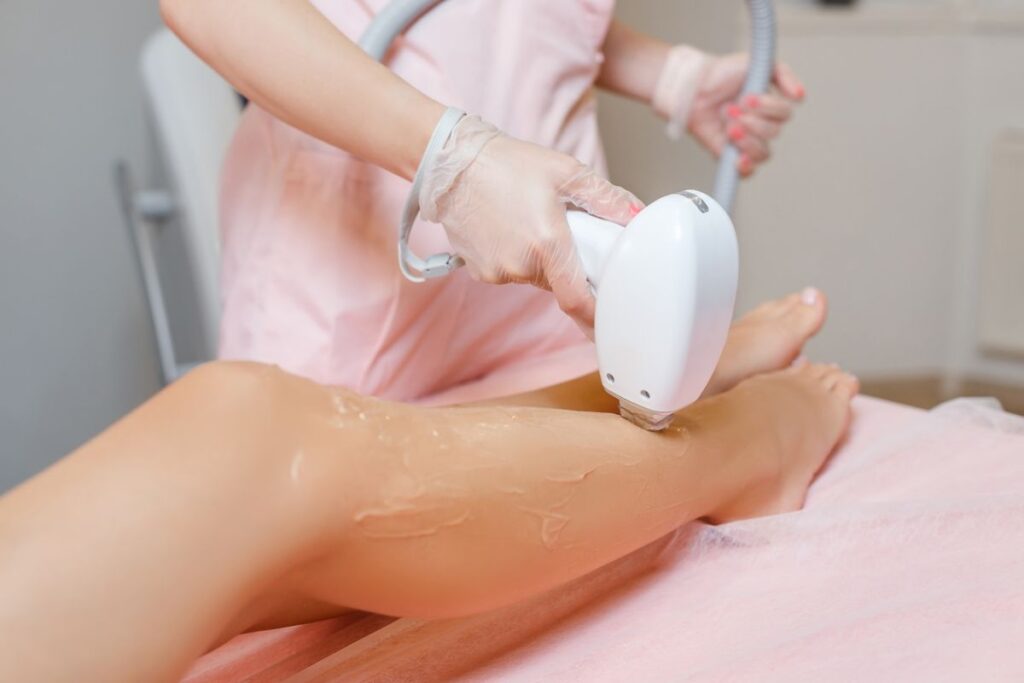The Texas Department of Licensing & Regulation (TDLR) issues licenses for a wide range of occupations and oversees enforcement of the rules that regulate those occupations, including individuals licensed for laser hair removal. As a result, TDLR has adopted enforcement plans and penalty matrices for many occupations. These plans let license holders know what to expect if they face disciplinary proceedings.
Most recently, TDLR has adopted an enforcement plan and penalty matrix for laser hair removal license holders. An occupational license defense lawyer can help you understand the TDLR enforcement plan and potential sanctions you may face if you become the subject of a disciplinary complaint.
Licensing and Regulation of Laser Hair Removal Professionals
16 Tex. Admin. Code §118.1 et seq. sets forth the state regulations concerning the licensing and monitoring of laser hair removal facilities (LHRFs), laser safety officers, certified laser hair removal professionals, and senior laser hair removal technicians. TDLR has authorization under Texas law to handle the licensing of these individuals and take enforcement action against them in case of rules or law violations pertaining to this profession.
In keeping with those responsibilities, TDLR recently published an enforcement plan and disciplinary matrix concerning the various rule and law violations that these professionals may violate. While TDLR is not required to adhere to this matrix, it outlines the general range of sanctions individuals may face for violating specific rules. These matrices allow more consistency among disciplinary cases, so licensees know what to expect when facing disciplinary proceedings.
Laser Hair Removal Penalties and Sanctions
Penalties and sanctions for laser hair removal professionals are divided into four classes, A through D, ranging from least severe to most severe.
Class A Violations
Class A violations carry the potential for monetary fines ranging from $500 to $1,500. These violations include minor administrative violations, such as failing to notify TDLR of a change of address within 30 days and failing to provide all employees with written instructions on using LHR devices safely. Other Class A violations include posting and public information violations, including failing to publicly display one’s license in the appropriate location and post signs as required in the LHR-controlled area. Finally, Class A violations include recordkeeping violations, such as failing to provide TDLR with a copy of the LHR facility’s contract with a consulting physician and conducting and maintaining annual inventories of all LHR devices.
Class B Violations
Class B violations are more serious administrative, public information, and recordkeeping violations, as well as some advertising, facility and equipment, laser safety officer responsibility, and unlicensed activity violations. These violations can result in fines ranging from $1,000 to $2,500 and a license suspension of up to one year. For instance, the following violations constitute Class B violations:
- Failure to comply with adverse reporting requirements;
- Failure to provide customers with written statements of the risks of LHR, including potential eye damage;
- Failure to maintain records of audits and LHR procedures;
- Producing false or misleading advertising;
- Failure to stop LHR services when an LHR facility has lost the services of both designated consulting physicians;
- Failure to maintain records and retain them for the required retention period; and
- Failure to stop LHRF operations when facility certificate is expired.
Class C Violations
Class C violations can result in fines ranging from $2,000 to $5,000 and/or up to license revocation. These severe violations include unlicensed activity, sanitation, safety, public health, ethical, facility, equipment, supervision, and laser safety officer designation and responsibility violations. Examples of Class C violations include performing LHR without a license and operating an LHRF without a license, failing to secure LHR equipment to prevent unauthorized access, and failing to require LHR equipment users to wear proper protective eyewear. Other violations include failure to complete continuing education hours, adulterating or misbranding LHR devices, operating LHRFs from one’s living quarters, and failing to have a written contract between an LHRF and a consulting physician. Finally, Class C violations may include failing to ensure the proper safety and maintenance practices for LHR devices, failure to use protective eyewear, and failure to ensure that LHR equipment users are trained, certified, and compliant with all facility requirements and protocols.
Class D Violations
Class D violations are the most severe violations and may result in fines of $3,500 to $5,000 and/or license revocation. The following violations constitute Class D violations:
- Failure to comply with a previous order of TDLR;
- Use of an LHR device that threatened or endangered occupational or public health and safety;
- Failure of a Laser Safety Officer to take control to institute corrective actions in emergencies or where there are unsafe conditions;
- Use of an LHR device for unapproved purposes and/or at unsafe settings; and
- Improperly disclosing a customer’s record.
We Will Represent Your Interests Before TDLR
We know how important it is to maintain your occupational license during disciplinary proceedings and safeguard your ability to earn a living. The experienced occupational license defense lawyers at Bertolino LLP, will advocate to help you obtain the occupational license you seek. Together, we will work to put you in the best position possible to obtain your occupational license. Call us at (512) 515-9518 or contact us online.
Call or text (512) 476-5757 or complete a Case Evaluation form





